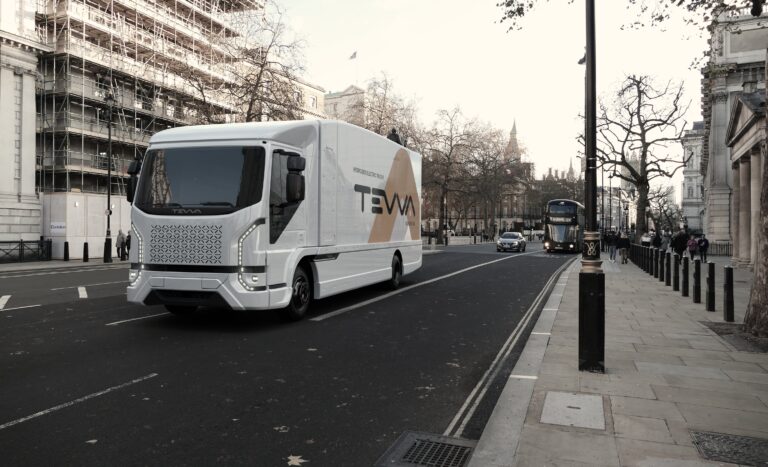Global climate conference COP28 is taking place in the United Arab Emirates from November 30 to December 12, 2023, with governments from around the world developing policies to tackle climate change.
This year, Tevva participated in one of the first speaker briefings, ‘Accelerating the Transition Through Road Transport’, discussing how collaboration can accelerate the adoption of zero-emission vehicles.
Stuart Cottrell, head of energy services and government partnerships at Tevva, said, “Tevva has had its challenges this year– similar to many startups in the EV space who are facing several obstacles to mass production. Volta Trucks filed for bankruptcy due to supply chain issues, although there is hope for them on the horizon.”
Tevva produces battery-electric trucks at its London facility. However, the company needs help to scale up toward greater adoption of zero-emission vehicles, Cottrell says.
“Simply put, we believe that further government action is required to ensure that the UK achieves its net-zero goals in the best and fastest possible way for the good of the environment, economy and British people.”
Recently, the European Parliament voted to adopt new CO2 standards for heavy-duty vehicles (45% by 2030, 65% by 2035 and 90% by 2040). In the UK, there are more ambitious goals of 100% zero-emission by 2035 for commercial vehicles below 26 metric tons (where Tevva is currently operating), and 2040 for 26 metric tons and over.
Financial incentives on offer for battery-electric truck adoption in the UK are “paltry”, Tevva says, compared to those found in Europe.
 “As a vehicle manufacturer, Tevva can offer customers a maximum discount of £16,000 (US$20,000) for one of our 7.5 metric ton battery electric trucks. Yet, in Germany, for example, the government provides 80% of the price differential between diesel and battery-electric trucks; in the Netherlands, it’s 45%. That’s potentially between £50,000-£90,000 (US$62,870-US$113,167) per truck more than the UK offers.”
“As a vehicle manufacturer, Tevva can offer customers a maximum discount of £16,000 (US$20,000) for one of our 7.5 metric ton battery electric trucks. Yet, in Germany, for example, the government provides 80% of the price differential between diesel and battery-electric trucks; in the Netherlands, it’s 45%. That’s potentially between £50,000-£90,000 (US$62,870-US$113,167) per truck more than the UK offers.”
Cotrell said that a second area where the UK could be better equipped to reach its net-zero goals is the availability of charging infrastructure: “At the Motor Transport Decarbonisation Summit in the UK, infrastructure was highlighted as the industry’s number one concern. To say a lot rests on the success of the Zero Emission HGV and Infrastructure Demonstration program and other schemes is putting it mildly.”
Tevva states that it is imperative that actions and policies are put in place to facilitate the UK’s journey to net zero.


